Books on the Wall posts featuring “Words Wednesday” book quote graphics. New graphics added every week, so be sure to check back often!
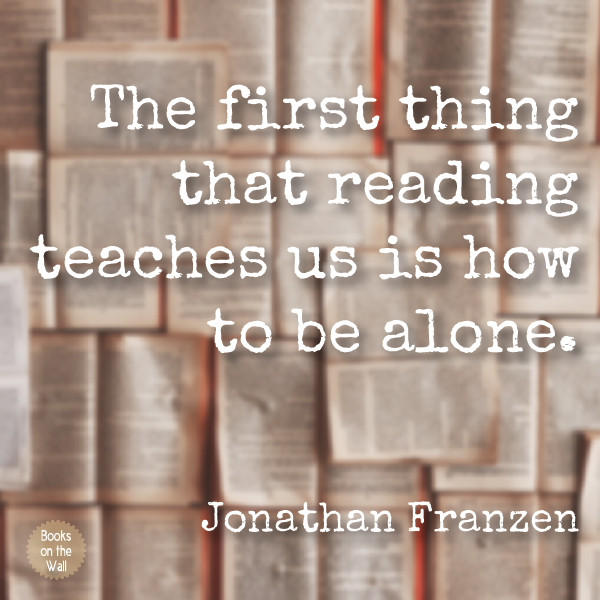
Today’s Words Wednesday features a Jonathan Franzen quote from his essay collection entitled, fittingly, How To Be Alone. How To Be Alone by Jonathan Franzen Published in 2002, How To Be Alone is a collection of fourteen essays ranging in topic from the role of the novel in contemporary culture to the painful loneliness of Alzheimer’s. Many of the essays had been originally published in magazines such as Harper’s Magazine and The New Yorker. One of the essays, “My Father’s Brain,” was nominated for a 2002 National Magazine Award and was the basis for the character of Earl Lambert in his […]
Continue Reading
This Chimamanda Ngozi Adichie quote comes from her most recent novel, Americanah. Americanah by Chimamanda Ngozi Adichie Published in 2013, Americanah follows the lives of Ifemelu and Obinze, a young Nigerian couple who leave military-ruled Nigeria in search of better opportunity. Ifemelu ends up as a renowned blogger who writes about race in America; Obinze struggles as an undocumented immigrant in England. (Ifemelu’s blog, Small Redemptions of Lagos, is actually published on Adichie’s own website, though there are no posts.) Through the story of Ifemelu and Obinze, their life together and their lives apart, Americanah explores ideas of national, cultural, racial, and personal […]
Continue Reading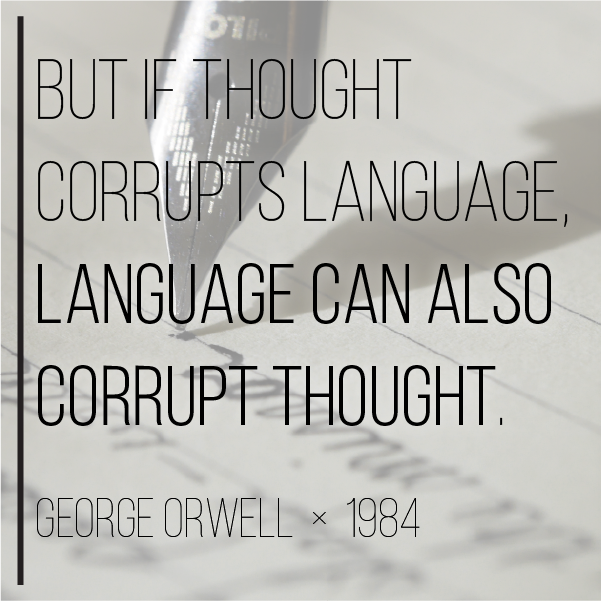
1984 by George Orwell This George Orwell quote comes from his acclaimed novel 1984 (sometimes written as Nineteen Eighty-Four). Published in 1949, 1984 is a dystopian novel that explores life under a totalitarian government that controls everything and watches everyone. “But if thought corrupts language, language can also corrupt thought.” -George Orwell quote from 1984 Orwell’s Legacy It’s almost impossible to overestimate the lasting influence that 1984 has had on popular culture. Many common words were first introduced by Orwell in 1984, including doublespeak, thoughtcrime, telescreen, memory hole, and of course Big Brother. The author himself has even entered into the lexicon […]
Continue Reading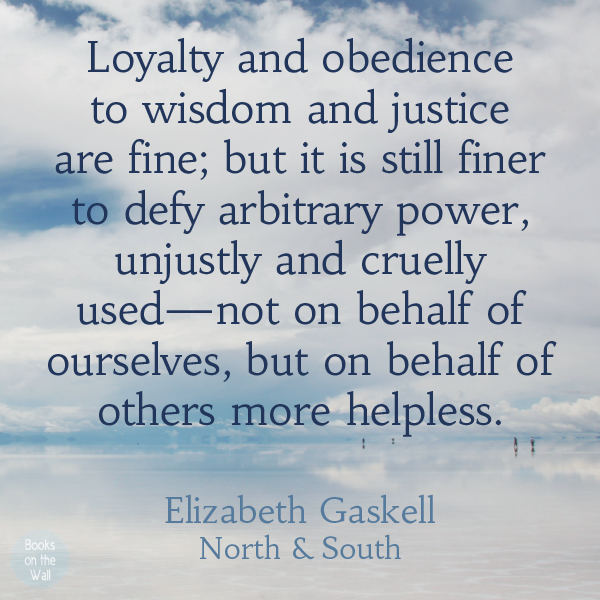
North and South Book (1854) This quote comes from Elizabeth Gaskell’s acclaimed novel North and South. Gaskell’s third novel, North and South was originally published in serial form in Charles Dickens’ literary magazine Household Words from September 1854 to January 1855. Like many Victorian novels, North and South is a social novel that sought to expose the plight of the working poor in England. The novel follows the main character Margaret Hale as she moves from the tranquility of the rural South to a cramped, dirty, and rapidly industrializing mill town in the North. Margaret is forced to face her own prejudices […]
Continue Reading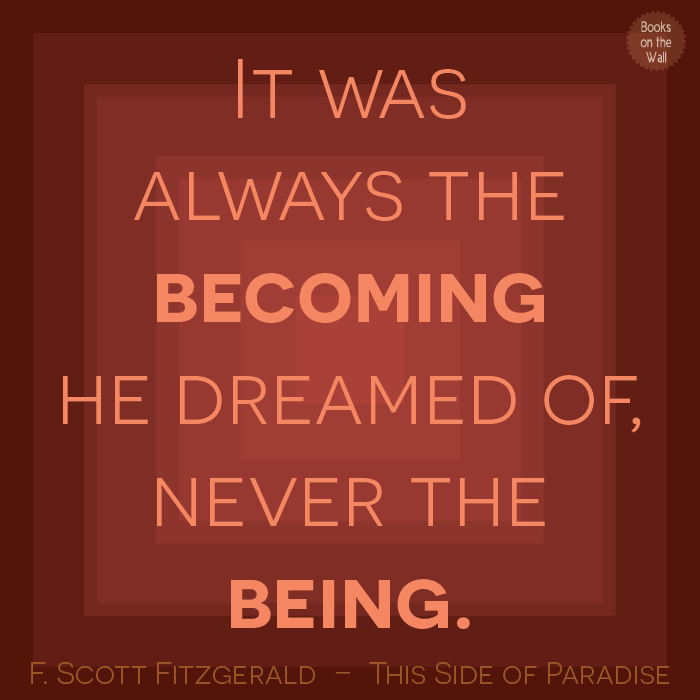
This F. Scott Fitzgerald quote comes from This Side of Paradise, which came out in 1920 and was the author’s first published novel. This Side of Paradise follows young Amory Blaine, who leaves his home in the Midwest to begin college at Princeton University. The novel received fairly positive reviews when it was first released, but it has never gained the public acclaim of Fitzgerald’s other works (like The Great Gatsby). It was always the becoming he dreamed of, never the being. -F. Scott Fitzgerald, This Side of Paradise Can’t get enough of F. Scott Fitzgerald? Check out our post […]
Continue Reading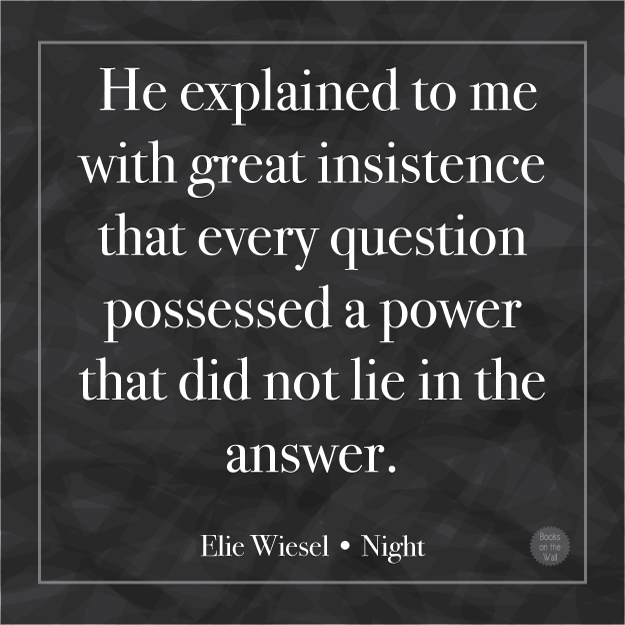
This quote comes from Elie Wiesel’s acclaimed novel Night. Published in 1960, Night is based on Wiesel’s experiences as a prisoner in the Auschwitz and Buchenwald concentration camps from 1944 to 1945. The semi-autobiographical novel (some insist it is fiction) is divided into three parts: Night, Dawn, and Day. Night has become a staple of high school and college reading courses around the world and is part of the canon of fictional and non-fictional works about the Holocaust. Wiesel passed away on July 2, 2016, at his home in New York City. A founding member of the New York Human […]
Continue Reading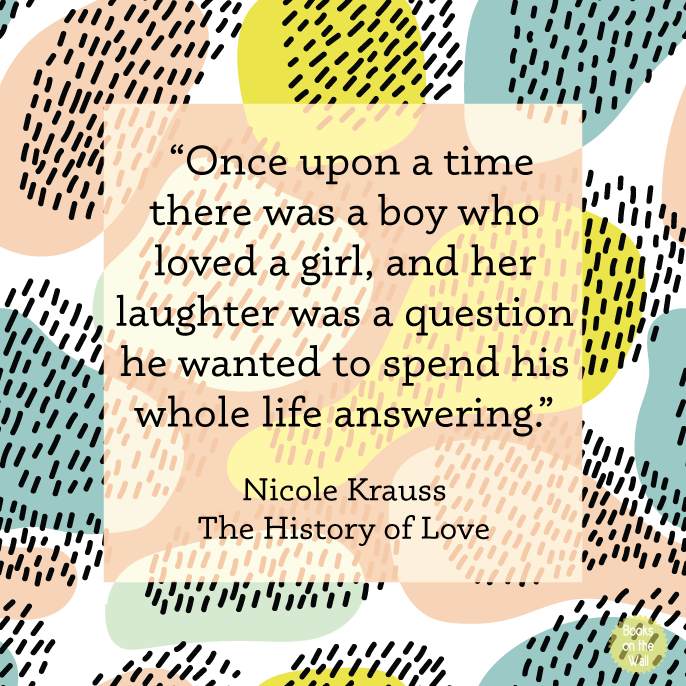
This Nicole Krauss quote comes from her second published work, The History of Love. Published in 2005, the novel was a finalist for the Orange Prize in Fiction the following year. Fairly or not, The History of Love tends to be compared to the work of Krauss’s then-husband Jonathan Safran Foer. That work, Extremely Loud & Incredibly Close, was also Safran’s second novel, and the two works share several main character types and plot points: intelligent-beyond-their-years children without fathers who go on journeys to discover something and along the way stumble into remnants of Jewish heritage and historical and personal tragedies. […]
Continue Reading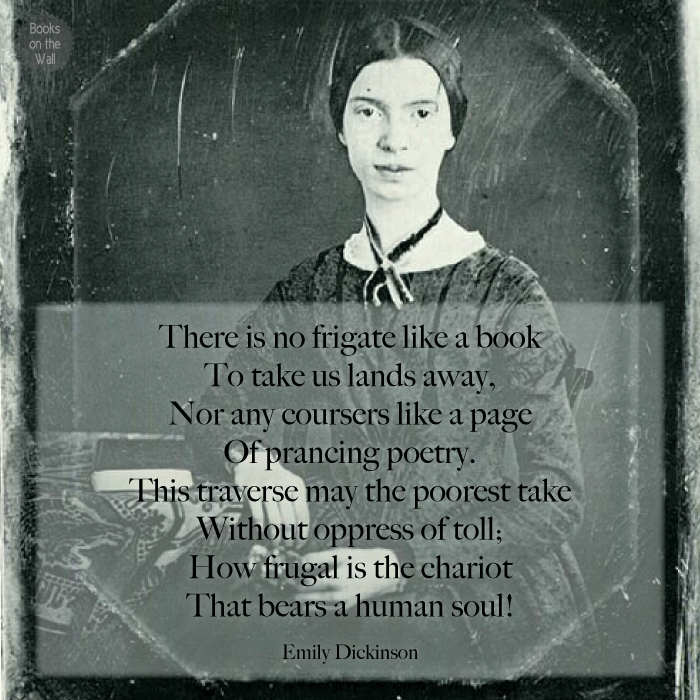
This quote comes from a poem by Emily Dickinson. Emily Dickinson was an early American poet who lived in Amherst, Massachusetts. Dickinson’s poems are often short and unnamed, and they typically focus on themes of human mortality and death; in fact, most of her work was published posthumously. One of our favorite Dickinson poem, of course, speaks to the power of books: There is no frigate like a book To take us lands away, Nor any coursers like a page Of prancing poetry. This traverse may the poorest take Without oppress of toll; How frugal is the chariot That bears […]
Continue Reading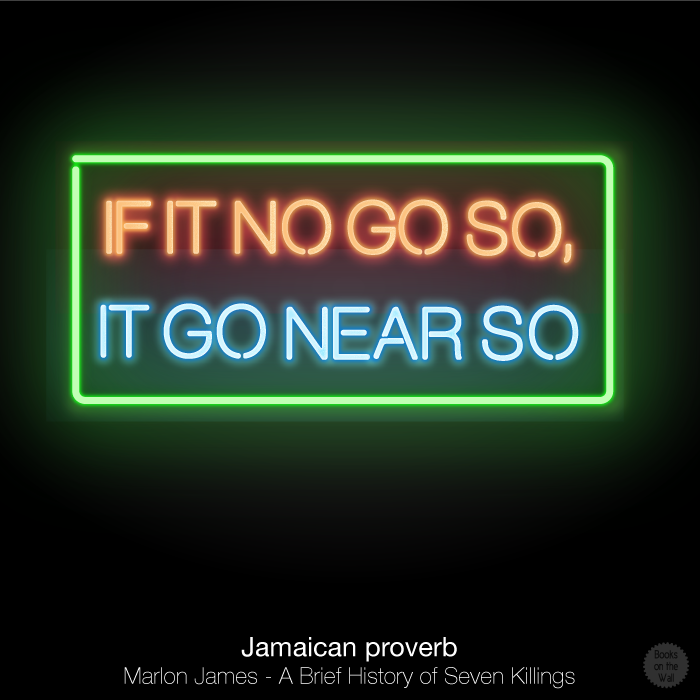
Published in 2014, A Brief History of Seven Killings is Marlon James’ third novel and follows the events leading up to and following the assassination attempt on Bob Marley’s life. With incredibly unique characters, multiple Englishes, and a sweeping storyline, A Brief History of Seven Killings is a “post-post-colonial” look at the complexity of Jamaican and American history, society, and pop culture. James is the first and only Jamaican-born author to have won the Man Booker Prize. “If it no go so, it go near so.” -A Jamaican proverb featured in the epigraph of Marlon James’ A Brief History of […]
Continue Reading